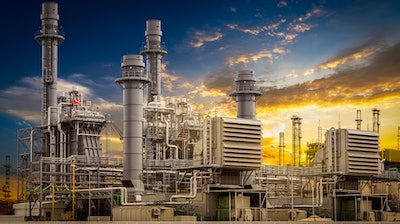
DALLAS (AP) — Federal officials made more than two dozen recommendations Thursday aimed at further safeguarding power plants and natural gas supplies to prevent a repeat of the February blackouts that caused more than 200 deaths in Texas.
Staff at the Federal Energy Regulatory Commission and the North American Reliability Corp. made their recommendations to FERC's four commissioners while presenting a preliminary report on the February disaster, which left millions of people without power during subfreezing temperatures.
“The situation didn’t need to be as bad as it was,” said FERC Chairman Richard Glick. He said changes should have been made after a winter storm caused blackouts in Texas in 2011, when a report called for the mandatory weatherization of power plants.
“But somehow that recommendation eventually was watered down to guidelines that few generators actually followed,” said Glick, a former Democratic congressional staff lawyer. “I can guarantee you that this time, FERC will not let these recommendations be ignored or watered down.”
In the preliminary report, officials recommended that power providers be required to meet tougher standards for protecting their plants from freezing temperatures and that they should be able to seek compensation for the cost of winterizing them. Such a change would make Texas’ deregulated electricity market more like those in other states.
They said natural gas facilities also should have cold-weather plans and be able to operate during weather emergencies. That could mean adding heating equipment and backup generators in case the power fails.
Glick also criticized Texas’ decision to largely isolate its power grid from the rest of the country to avoid federal regulation of its energy market. That limits the ability of the grid operator, the Electric Reliability Council of Texas, to import power from neighboring states.
Glick said Texas was “very short-sighted” in going it alone. The preliminary report made no recommendation on the issue; a FERC staffer said it needs further study.
Another of the four commissioners – one seat on the five-member panel is vacant – said the winter storm demonstrated another problem with the Texas electricity market: It relies solely on scarcity pricing to keep the power flowing during emergencies. Mark Christie said that structure doesn’t require producers to provide power when it is most needed.
It was “an accident waiting to happen, and it happened in February,” said Christie, a former utility regulator in Virginia who was nominated to the federal commission by then-President Donald Trump in January. “It’s up to Texans to decide this. It’s their choice, and I think they will get it figured out.”
Unlike other grid operators, ERCOT does not pay providers to ensure power in a pinch, which would raise prices for electricity customers. Instead, ERCOT depends on higher wholesale prices during shortages to give producers an incentive to generate power.
According to the report, freezing issues were the largest cause of outages, at 44%. That included frozen instruments and wind turbine blades. Fuel supply problems were the next biggest factor, at 31%. Supply issues were mostly related to natural gas, including frozen wellheads.
A final report is expected in November.






















